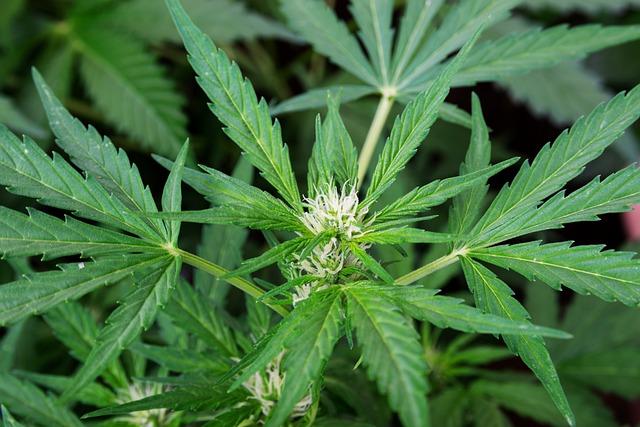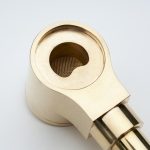Recent lab reports on THCA flower, a non-psychoactive component of the cannabis plant, indicate its potential therapeutic benefits, including anti-inflammatory and neuroprotective effects. These detailed analyses reveal THCA flower's rich cannabinoid and terpene profile, with specific concentrations of THCA, CBD, and CBN, and their combined action through the entourage effect may offer enhanced health benefits. The research underscores THCA flower's medicinal potential, particularly for pain management, anxiety reduction, and as a natural wellness alternative to conventional pharmaceuticals, without psychoactive side effects. User experiences align with scientific findings, emphasizing its calming effects. As the body of evidence grows, THCA flower lab reports are establishing its role in promoting health and managing various conditions, highlighting the importance of these comprehensive studies for informed decision-making regarding its therapeutic use.
Discover the transformative properties of THCA flower, a non-psychoactive cannabinoid gaining attention for its therapeutic potential. Our comprehensive article delves into the latest lab reports and scientific findings that reveal the health benefits associated with this natural compound. From understanding its biological mechanisms to exploring real-world applications, we uncover how THCA flower can be a valuable addition to wellness routines, all backed by robust research. Join us as we dissect the science behind THCA flower lab findings that promise a new horizon in holistic health and well-being.
- Unveiling the Therapeutic Potential of THCA Flower: A Glimpse into Lab Reports
- The Science Behind THCA Flower: Analyzing Lab Findings for Health Benefits
- Maximizing Wellness with THCA Flower: Real-World Applications Backed by Research
Unveiling the Therapeutic Potential of THCA Flower: A Glimpse into Lab Reports

Laboratory analyses have shed light on the therapeutic potential of THCA flower, a non-psychoactive cannabinoid found in the Cannabis sativa plant. These lab reports offer a comprehensive profile of the compounds present in THCA flower, highlighting its unique properties. THCA, or Tetrahydrocannabinolic Acid, is the precursor to THC, the psychoactive component of cannabis, but on its own, it does not produce a ‘high’. Instead, studies suggest that THCA may offer various health benefits, which are currently being explored in scientific research.
The lab reports on THCA flower reveal a rich cannabinoid and terpene profile that could play a significant role in natural wellness regimens. These reports detail the precise concentration of THCA, along with other cannabinoids like CBD and CBN, and their potential therapeutic effects. Additionally, the presence of various terpenes, such as myrcene, limonene, and caryophyllene, is analyzed. These compounds are believed to contribute to the entourage effect, where the combined effect of cannabinoids and terpenes may be greater than the sum of their individual effects, potentially enhancing the therapeutic properties of the THCA flower. As such, the lab reports serve as a critical resource for understanding the full spectrum of benefits that THCA flower may offer, guiding consumers and researchers towards informed decisions about its use in health and wellness practices.
The Science Behind THCA Flower: Analyzing Lab Findings for Health Benefits

Lab analyses have shed light on the therapeutic properties of THCA, or tetrahydrocannabinolic acid, the raw form of THC found in cannabis plants. These lab reports, crucial for understanding the compounds’ effects, reveal that THCA possesses anti-inflammatory, anti-nausea, and potential neuroprotective qualities. Researchers have observed that THCA interacts with the body’s endocannabinoid system, influencing pain sensation, appetite, and mood without the psychoactive effects associated with its decarboxylated form, THC. The findings from these investigations indicate that THCA flower may hold significant promise for individuals seeking natural alternatives to pharmaceutical interventions, particularly in managing chronic pain, reducing anxiety, and supporting overall well-being. The precise concentrations of THCA in the flower, as detailed in lab reports, are vital for determining optimal dosages and effective treatment protocols. As such, the scientific community continues to explore the full spectrum of benefits that THCA flower might offer, with a growing body of evidence underscoring its potential therapeutic applications.
Maximizing Wellness with THCA Flower: Real-World Applications Backed by Research

Laboratory analyses have shed light on the therapeutic potential of THCA flower, a form of cannabis that contains the non-psychoactive acid precursor to THC, tetrahydrocannabinolic acid (THCA). These lab reports highlight the presence of THCA in its most bioavailable state, offering a range of wellness benefits without the psychoactive effects associated with its decarboxylated form, THC. Preclinical studies indicate that THCA may exhibit anti-inflammatory, neuroprotective, and analgesic properties, making it a subject of interest for various health applications. Incorporating THCA flower into wellness routines has been supported by empirical evidence, suggesting its efficacy in managing pain, reducing anxiety, and alleviating symptoms related to neurodegenerative diseases. Users often report positive experiences with THCA flower, noting its calming effects without the high typically associated with cannabis consumption. This non-psychoactive alternative provides a versatile option for those seeking the medical benefits of cannabinoids while maintaining clear-headedness and sobriety. The growing body of research on THCA flower continues to underpin its role in enhancing overall wellness, emphasizing the importance of scientific validation in guiding its use for health promotion and disease management.
THCA flower, rich in therapeutic potential as evidenced by comprehensive lab reports, emerges as a promising wellness option. The scientific analysis of its constituents has revealed a spectrum of health benefits, which are not only intriguing but also supported by robust research. As we continue to explore the applications of THCA flower in real-world settings, it becomes clear that this natural compound holds significant promise for those seeking alternative or complementary health strategies. The convergence of scientific evidence with practical application underscores the importance of THCA flower lab reports as a cornerstone for understanding its benefits.

